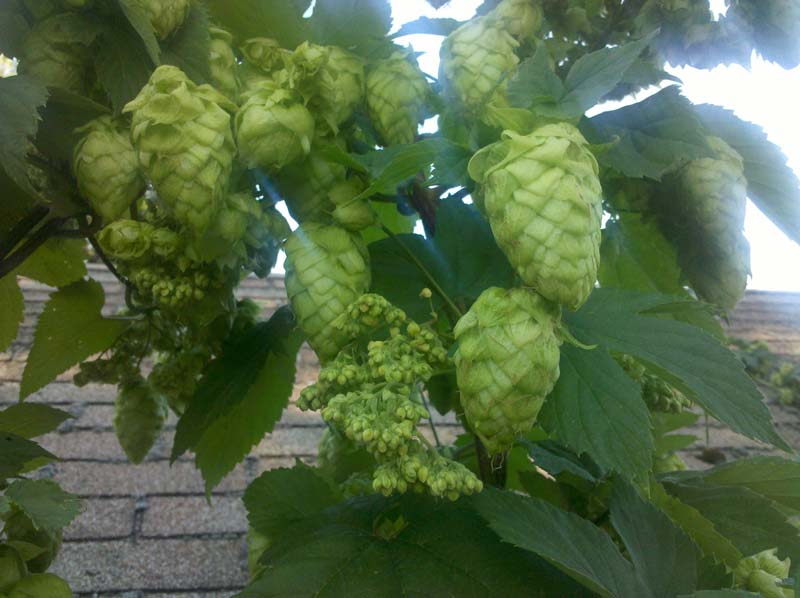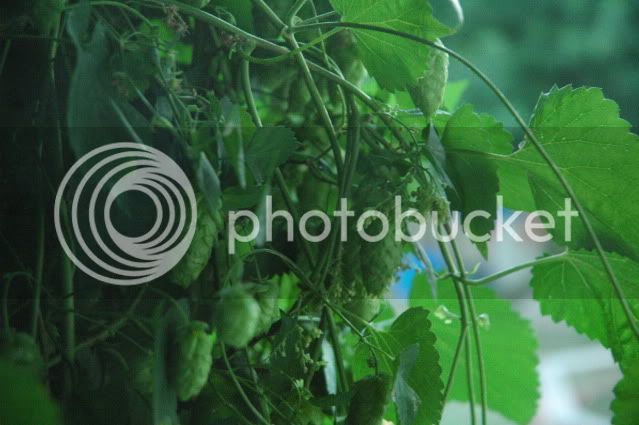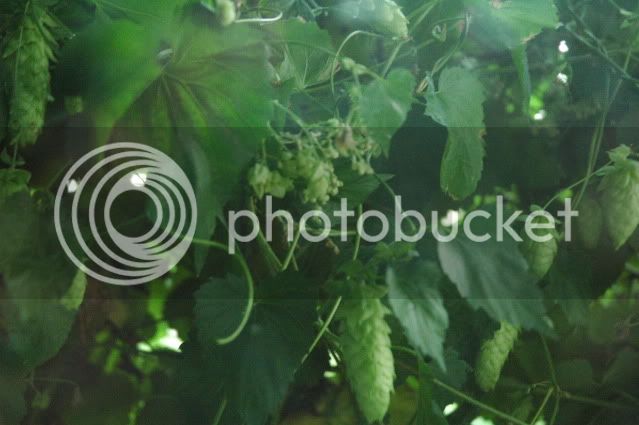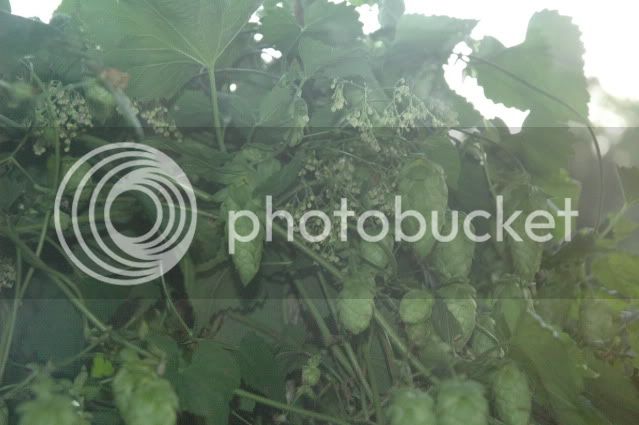So I just noticed today that my first year Columbus plant has both cones and seed clusters growing on it. Down low its almost all cones, which I think is why I didn't notice sooner, but higher up there are tons of seeds. Is this a male plant? Or I've heard they can sometimes be hermaphrodites so maybe that is it??
I'm assuming I probably don't want to keep this plant in my hop garden, is that correct? My concern I suppose is more whether having the male Columbus plant will cause any cross-breeding or whatever with my existing Willamette or Cascade plant (both of which are producing all cones at this point)? I'd appreciate any advice or suggestions. Thanks
Here's a picture:

I'm assuming I probably don't want to keep this plant in my hop garden, is that correct? My concern I suppose is more whether having the male Columbus plant will cause any cross-breeding or whatever with my existing Willamette or Cascade plant (both of which are producing all cones at this point)? I'd appreciate any advice or suggestions. Thanks
Here's a picture:






